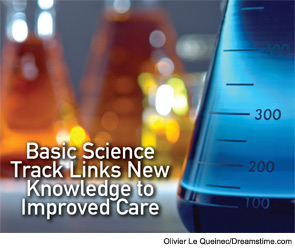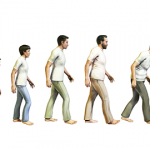
The ACR/ARHP Annual Meeting is the premier event for specialists in the field of rheumatology, and at this year’s meeting, basic researchers will be afforded multiple opportunities to increase their knowledge, because there will be something for every interest. There are several exciting offerings planned—we are committed to enhancing our meeting to bring you the best science.
The basic science program planned for this year’s meeting includes a variety of topics intended to link new knowledge in the basic sciences with improved care of patients with arthritis and autoimmune rheumatic disease. A symposium on the development of predictive biomarkers should be of interest to both basic researchers and clinicians, as will a State-of-the-Art lecture on pain. The always-popular immunology updates for clinicians will include talks on new therapies that target B cells as well as novel cell-signaling targets. A State-of-the-Art lecture will highlight synovial immunobiology and the response to therapy, and will be complemented by talks in other sessions on visualizing the immunoinflammatory response, new prospects for treating rheumatoid arthritis, and a cutting-edge rheumatoid arthritis pathogenesis lecture. Recent advances in understanding the mechanisms underlying the autoinflammatory diseases will be covered in a State-of-the-Art lecture, while the role of macrophage and dendritic cell heterogeneity in tissue inflammation and fibrosis will be tackled in a basic science symposium.
Several hot topics in basic research will be covered in sessions on microRNA, epigenetics, the microbiome, and systems immunology, as well as a State-of-the-Art lecture on neutrophil extracellular traps. Recent advances in metabolism and energetics will be the focus of sessions on metabolism in autoimmunity, ER stress in immunity, and inflammation and a symposium on energetics in osteoarthritis. For bone and cartilage researchers, a basic science symposium on mechanotransduction, a State-of-the-Art lecture on osteoimmunology and a basic science symposium on new molecules in joint biology will be of great interest.
With the rapidly rising numbers of older adults, a basic understanding of how aging affects the development of autoimmune rheumatic disease will be important. A State-of-the-Art lecture will introduce recent advances that have been made in basic aging research and a basic science symposium will connect basic science advances to the aging immune system and susceptibility to disease.
For more detailed information on this year’s basic science offerings, visit www.ACRAnnualMeeting.org.
